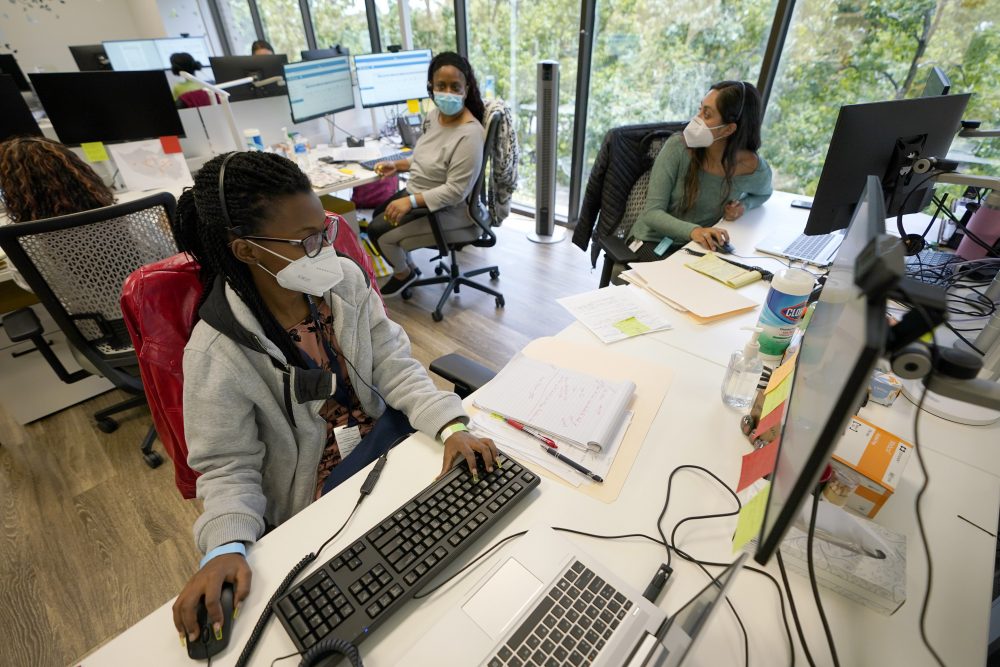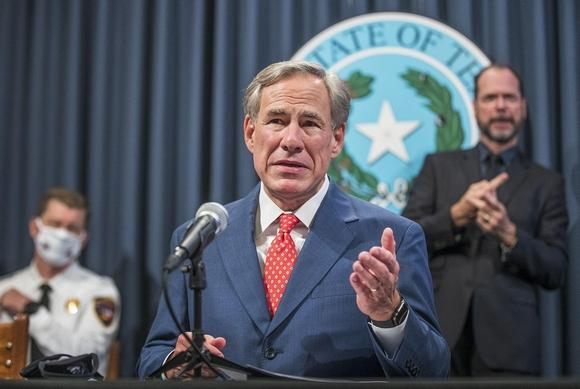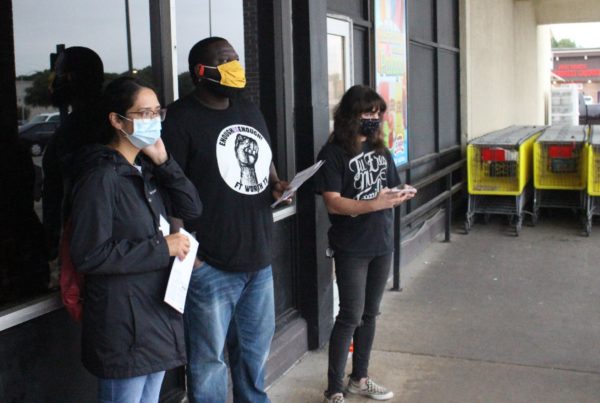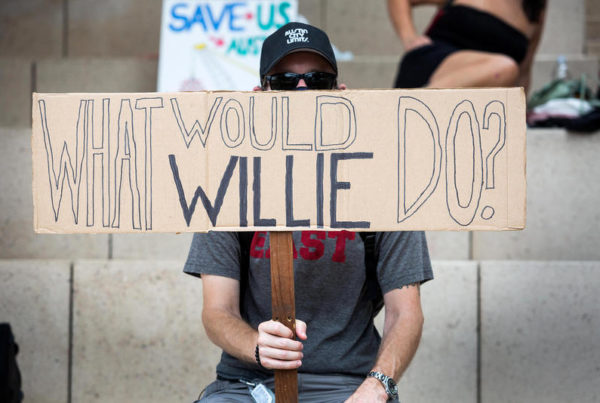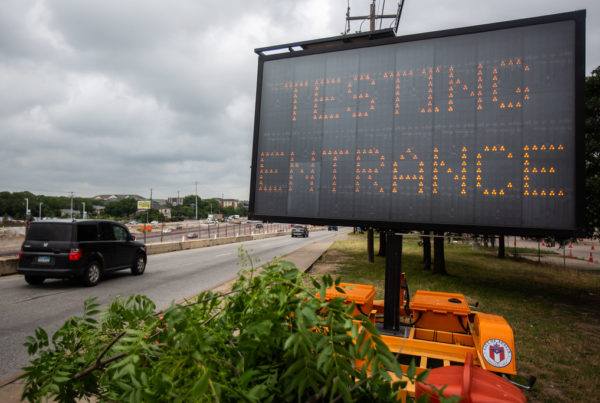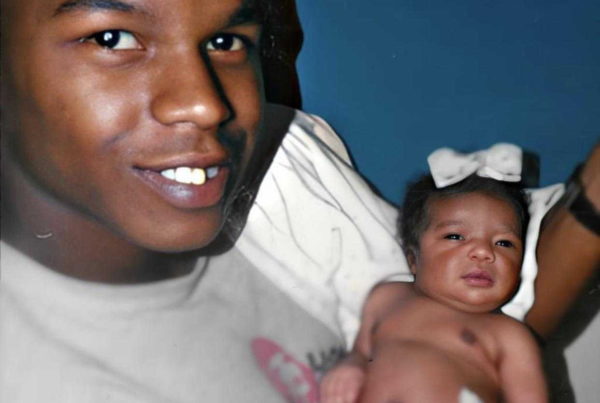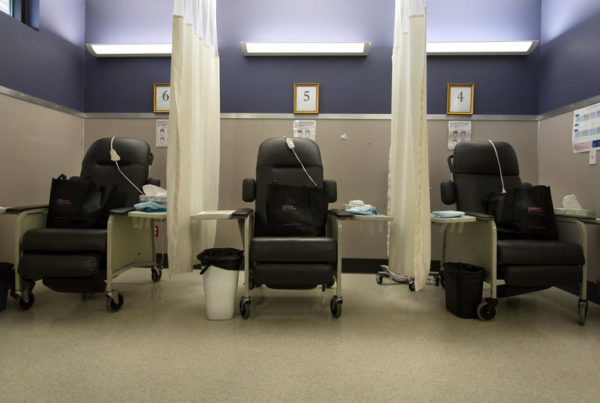Compared to July, August was a much better month for Houston’s COVID-19 epidemic, as the number of daily cases reported by the city continued to steadily decline.
The Houston Health Department reported on Monday that 7.8% of people seeking a test in the greater Houston area are testing positive. In July, the positivity rate reached as high as 25%.
“It’s good news, but it’s not the time to stop [precautions],” said Dr. David Persse, the Health Authority for the Houston Health Department. “Things are moving in the right direction, but we’re not quite where we want to be just yet.”
City officials say that until there’s a vaccine, the goal is to achieve a positivity rate of 5% or below. And the main tool they have to reach this target, is the process of contact tracing. This strategy is crucial to what health officials call the “mitigation” phase of gaining control of COVID-19. But its success depends on people picking up the phone — and staying on the line. And one challenge contact tracers say they face is reaching Houstonians who don’t speak English.
The job of a contact tracer is either to call people who have tested positive and inform them of the bad news, or to reach out to that positive case’s contacts and ask them to take precautions.
Kirstin Short, the chief epidemiologist of the Houston Health Department, said one of the questions they may ask is, do you have a way to safely isolate within your home?
“So not just staying away from the rest of your community, but staying away from the rest of your household members,” she said.
Contact tracing was a novel concept when the coronavirus first arrived in Houston. Back then, the majority of people who were contacted did not have any idea that they’d been exposed.
“My theory behind it is there was still some sort of stigma associated with it. People who were testing positive, maybe didn’t notify all of their contacts,” said Guadalupe Valdovinos, a contact tracer with the Houston Health Department.
She’s been contact tracing since April, and said people’s attitudes about getting a call from her have changed over time. More people know they’ve been exposed now, and are already taking precautions — some are already in quarantine.
“You have people sometimes who are like, ‘oh, I already know. I had my family member who tested positive, or my friend has already notified me.’ We’re seeing more of that now, than at first,” Valdovinos said.
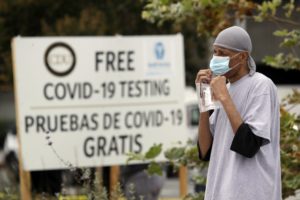
Reaching Houstonians who don’t speak English is critical to contact tracing, especially as COVID-19 is disproportionately impacting Latinos in Texas and other states. AP Photo/Marcio Jose Sanchez, File
Health officials continue to stress the importance of picking up the phone when a contact tracer calls, as it’s the most effective way to slow down and manage the spread of the virus. But Valdovinos said connecting with residents who don’t speak English can present certain challenges.
“I’m a Spanish speaker. So when I call them, I’m able to speak the language that they speak, so we’re able to connect,” she said.
The Houston Health Department is no longer hiring contact tracers, but when they were, they prioritized bringing on bilingual candidates. The reason for this is because if the contact tracer can’t communicate with someone who doesn’t speak English, that tracer then has to use a translator hotline.
“It’s challenging,” Valdovinos said. “Sometimes the translator doesn’t translate the information like we say it. It’s not always being translated 100%.”
Using a translator can complicate things for several reasons. One, translators don’t always have a public health background. Valdovinos said they pause a lot, as they try to explain the serious situation, and by that time, the person may have already hung up the phone. More importantly, Valdovinos said a lot of contact tracing is just connecting with people, and that’s hard with a language barrier.
“I’ll just ask, oh, so where are you from? And they’ll tell me they’re from this part of Mexico…And I’ll say, Oh, I’ve been there. Just to make them feel more comfortable,” she said.
Valdovinos said it’s also important to know that your information is private, and things like immigration status are not asked for.
“Your information is confidential — by law,” she said.
COVID-19 has hit Houston’s Latino community especially hard. Latinos make up about half of the city’s COVID-19 deaths. But Valdovinos believes if contact tracers like herself can reach more of the city’s Spanish-speaking population, those case numbers could keep going down.


